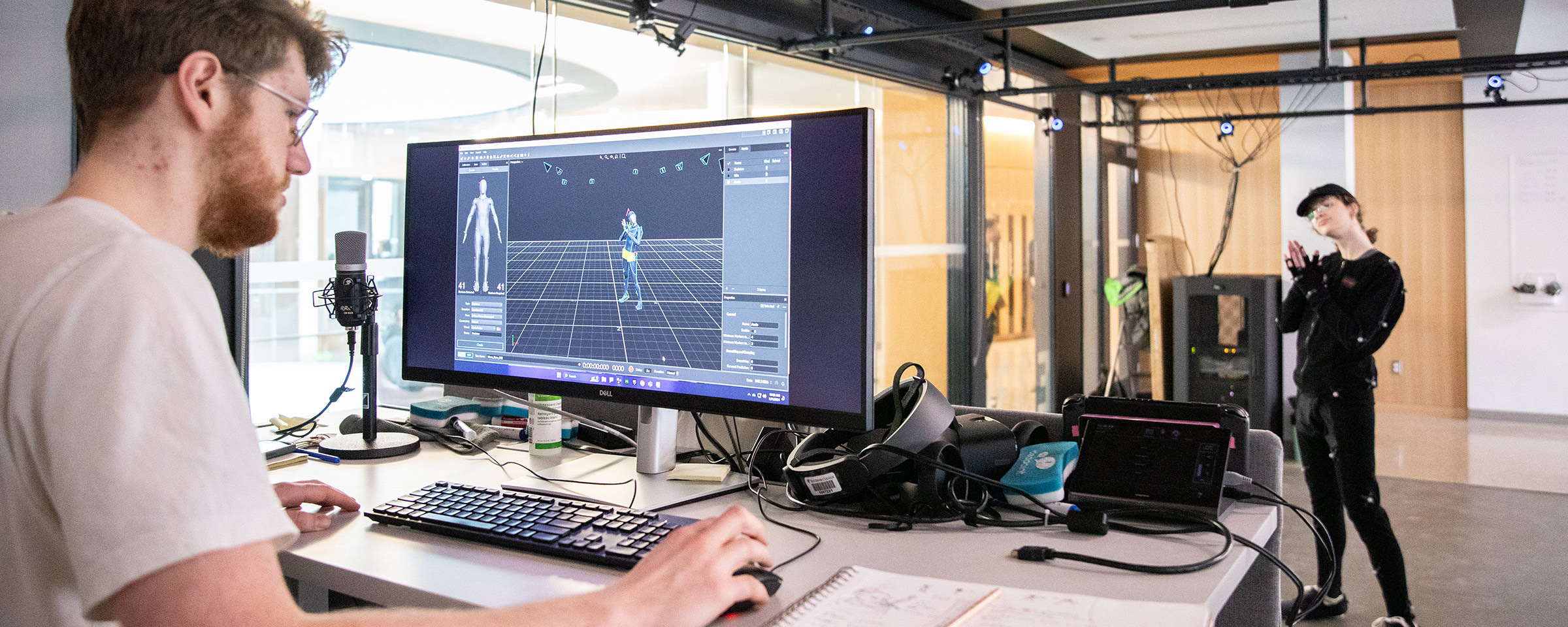


RRC Polytech’s Digital Technology Transformation Initiative (DTTI) is a cross-institutional program created to support applied research collaborations between the College and industry that aim to advance digital transformation and drive sustainability in Manitoba.
Funded by a Mobilize grant of just over $3.4 million from the Natural Sciences and Engineering Council of Canada (NSERC), the DTTI helps local small and medium-sized enterprises (SMEs) and community organizations by offsetting the costs of applied research projects that address existing gaps in technical and human skills that lead to digital innovation.
Access to RRC Polytech’s equipment, facilities and the expertise of professional research staff, faculty and students, along with funding for related materials and supplies eases the initial investment for Manitoba-based organizations to explore the validation of progressive ideas — accelerating digital adoption and clean tech across the province.
The applied research projects under DTTI will focus on the adoption of digital technologies that support Industry 4.0. These technologies include but are not limited to Artificial Intelligence (AI), additive manufacturing, big data analytics, simulation and modeling, industrial internet of things (IIoT), internet of things (IoT), autonomous collaborative robotics, cybersecurity, universal integration, and cloud/fog computing.
DTTI partner organizations may be from the public sector, private sector, for-profit companies, or not-for-profit organizations.
Partner organizations are expected to:
This strategic initiative aims to build capacity around digitally focused applied research at RRC Polytech, to address industry’s most critical needs in the areas of advanced digital manufacturing and clean technologies and to lay the groundwork for future collaborations. The DTTI will also provide invaluable experiential learning opportunities for students while facilitating a talent pipeline of diverse innovators to power the workforce of tomorrow.
RRC Polytech is excited to leverage the power of partnership to assist you. We understand that securing funding to aid research and development can be a time-consuming process. Let our DTTI Team connect you with the appropriate department and talent within our organization to lead your research project and help you navigate all available funding and engagement opportunities. Just describe the objectives and scope of your idea, and we will tailor our approach to maximize your investment.
Note: This list showcases key focus areas and sample projects but is not exhaustive. Please consult with the DTTI team for projects beyond these themes.
Sample projects may include:
Looking to develop a research or innovation idea? Benefit from the Digital Technology Transformation Initiative program, utilize our facilities and connect with our experts at RRC Polytech to develop your project. We’d love to work with you to bring your idea to life!
RRC Polytech campuses are located on the lands of the Anishinaabeg, Ininiwak, Anishininwak, Dakota Oyate, and Denésuline, and the National Homeland of the Red River Métis.
We recognize and honour Treaty 3 Territory Shoal Lake 40 First Nation, the source of Winnipeg’s clean drinking water. In addition, we acknowledge Treaty Territories which provide us with access to electricity we use in both our personal and professional lives.